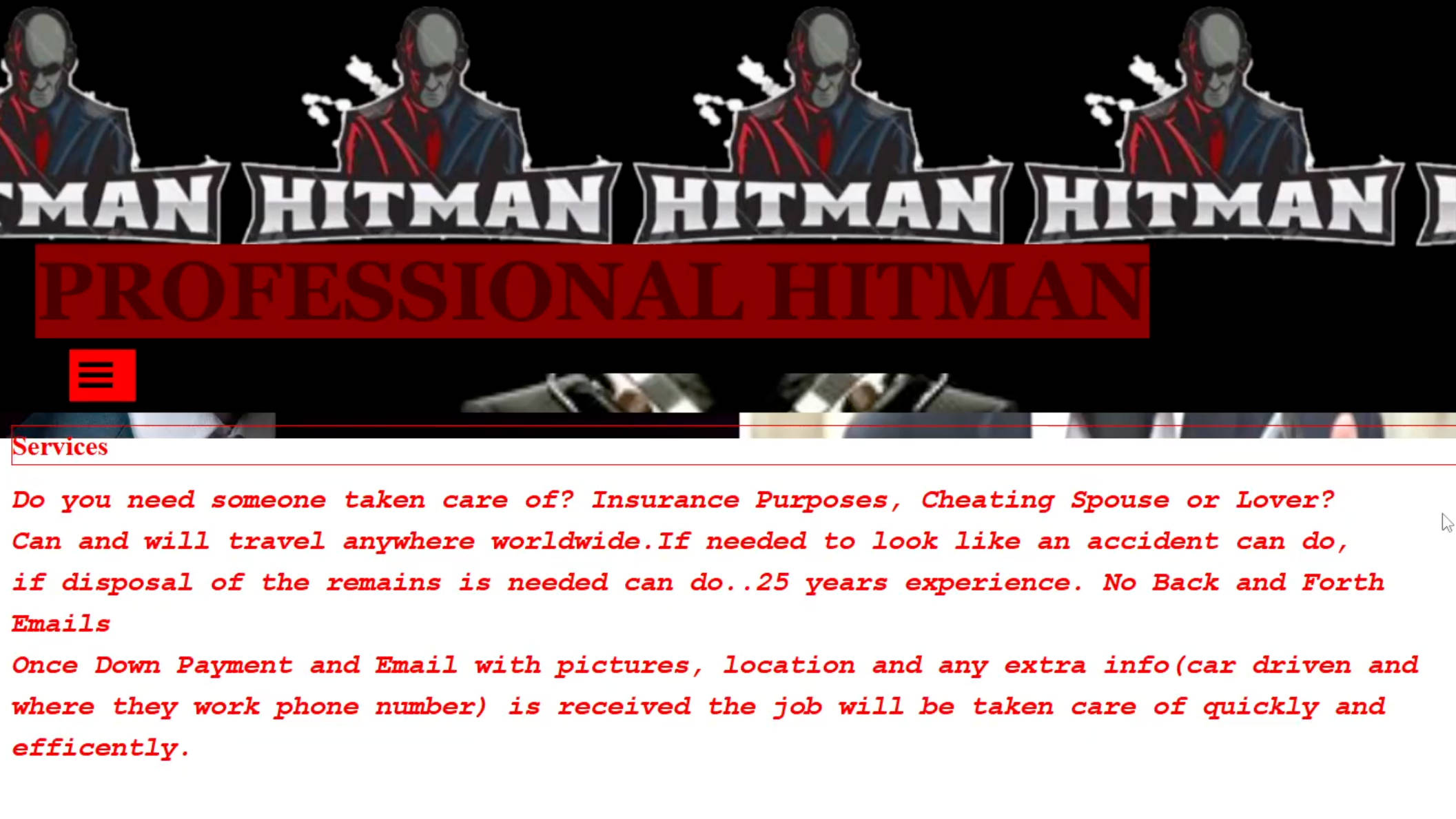Unpacking "inthebox Dark Web": Separating Fact From Online Fiction
Have you ever typed a search query, perhaps something like "inthebox dark web," and then wondered what you might find? It's a rather interesting phrase, isn't it? Many people, you know, are curious about the less-seen parts of the internet, and sometimes, a simple typo or a bit of confusion can lead to some truly surprising searches. This piece is going to help clear things up, especially if you're trying to figure out if a well-known online store, LightInTheBox, has any connection to those hidden corners of the web.
It's pretty common, actually, for people to mix up names or get a little lost when looking for something specific online. We're talking about how easy it is to type one thing and mean another, or perhaps wonder if a familiar name might pop up in unexpected places. The internet is a vast place, after all, and sometimes, the way we phrase our searches can lead us down paths we didn't quite expect. So, let's explore this idea of "inthebox dark web" and what it might really mean for you, the person looking for answers.
What we're going to talk about here is, frankly, about getting good information and staying safe when you're online. It's about understanding the differences between a regular shopping site, like LightInTheBox, and something entirely different, like parts of the internet that aren't indexed by standard search engines. We want you to feel confident about where you shop and what you look for, and to have a clear picture of what's out there. So, let's get into it, shall we?
Table of Contents
- Understanding the Mystery of "inthebox Dark Web"
- The Dark Web: What It Is and What It Isn't
- Staying Safe While Shopping Online
- Common Misconceptions About Online Activity
- Frequently Asked Questions
- Final Thoughts on Online Safety and Clarity
Understanding the Mystery of "inthebox Dark Web"
When someone searches for "inthebox dark web," it's pretty clear they're looking for something specific, or maybe they're just a little curious. It's a phrase that brings up questions about online safety and where certain websites might exist. But, to be clear, there isn't, you know, a known entity called "inthebox dark web" that's related to any legitimate online shopping center. It's more likely a misunderstanding or a typo related to a very real and well-known company.
So, the first thing to grasp is that the "dark web" part of that phrase suggests something hidden or illicit. Yet, the "inthebox" part sounds a lot like "LightInTheBox," which is a completely above-board online store. This distinction is really important, as a matter of fact, because confusing the two could lead to unnecessary worry or, worse, to looking for something that doesn't actually exist in that form.
What is LightInTheBox, Really?
Based on the information we have, LightInTheBox is, actually, a global online retail company. They started way back in 2007, and their whole business is about getting products directly to shoppers all over the world. They offer a huge variety of items, like fashion clothes, shoes, bags, and lots of other hot-selling products, all at what they say are reasonable prices. So, it's pretty much a regular online shopping center, like many others you might use every day.
- Center For Reproductive Rights
- Power Outage Entergy
- Ewr Tsa Precheck Terminal C
- La County Fair Map
- Calling Amazon
You can find all sorts of things there, from men's clothing like tee shirts and shorts to women's dresses and sweaters. They even have a good selection of shoes and bags, and it's all about making high-quality and fashionable items available. They ship globally, which means they reach customers in many different places. So, you know, it's a legitimate business, just like your typical online store.
Why the Confusion Between LightInTheBox and the Dark Web?
The confusion probably comes from a simple mix-up of words. "LightInTheBox" can easily be shortened in someone's mind, or even mistyped, to something like "inthebox." And then, when people are thinking about the less visible parts of the internet, the idea of the "dark web" might just pop into their heads, especially if they're looking for something unusual or trying to confirm if a site is legitimate. It's a bit like how people might mishear a song lyric or, you know, misremember a movie title.
This kind of thing happens a lot with online searches. People hear bits and pieces of information, or they have a general sense of something, and then they try to put it all together in a search bar. The important thing is to understand that LightInTheBox operates openly on the regular internet, the part we all use for shopping and browsing. It's not, you know, a hidden site that requires special software to access. It's just a regular online store, plain and simple.
The Dark Web: What It Is and What It Isn't
When people talk about the "dark web," it often sounds mysterious, maybe even a little scary. But what is it, really? Well, it's a part of the internet that you can't get to with a regular web browser like Chrome or Firefox. You need special software, like Tor, to access it. It's basically a collection of websites that are intentionally hidden and not indexed by standard search engines like Google. This means you won't just stumble upon it while doing your usual online activities.
It's important to understand that the dark web is just a small piece of the "deep web," which is all the content on the internet that isn't indexed by search engines. This includes things like your online banking portal, your private social media messages, or even, you know, password-protected company intranets. Most of the deep web is perfectly normal and legitimate. The "dark web" is just a tiny, often more talked about, part of that larger hidden section.
Separating Fact from Fiction About the Dark Web
There are many stories floating around about the dark web, and honestly, many of them are a bit over the top. While it's true that some illegal activities happen there, it's not all bad. For instance, journalists might use it to protect sources, or people in countries with strict censorship might use it to access information freely. So, it's not just a place for criminals, though that's often the main focus of news stories. It's a tool, and like any tool, it can be used for different purposes.
The idea that a regular, global online retailer like LightInTheBox would operate on the dark web is, quite frankly, a misunderstanding. Legitimate businesses want to be found easily by customers. They want their websites to show up in Google searches, and they want their payment systems to be secure and widely accepted. Operating on the dark web would make it incredibly difficult for them to reach their target audience and process payments reliably, so it just doesn't make sense for a business like that.
How the Dark Web Differs from Regular Internet Use
The biggest difference is how you get there. For the regular internet, you just open your browser, type in a website address, and you're there. It's very straightforward. For the dark web, you need specific software, and even then, finding sites can be tricky because they don't have easy-to-remember names. They often use long strings of characters, and you usually need to know the exact address to find them.
Also, the regular internet is designed for ease of use and broad access. Think about how Google translates text instantly between languages, or how you can find product reviews easily. The dark web, on the other hand, is built more for anonymity and privacy. This means things like speed and user-friendliness often take a backseat. So, you know, it's a very different experience from browsing your favorite online store.
Staying Safe While Shopping Online
Since the original query "inthebox dark web" might stem from concerns about online safety, it's a really good time to talk about how to shop securely on the internet. It's pretty important, actually, to know what to look for so you can protect your money and your personal details. Shopping online can be super convenient, but you want to make sure you're doing it on sites you can trust.
So, we'll go over some simple steps you can take to make sure your online shopping experiences are safe and sound. It's about being aware and taking a few basic precautions. These tips are good for any online store, whether it's a big name or a smaller one you're trying out for the first time. They're just good habits to have, you know, when you're out there on the web.
Spotting Legitimate Online Stores
One of the first things to check is the website address itself. Look for "https://" at the beginning of the URL, not just "http://". The "s" stands for secure, and it means the connection between your browser and the website is encrypted. You'll often see a little padlock icon in the address bar too. This is a very basic but, you know, essential security check.
Another good sign is a clear "About Us" section that tells you a bit about the company, like when they were founded or their mission. LightInTheBox, for example, clearly states they were founded in 2007 and are a global online retail company. Good contact information, like a customer service number or email, is also a positive sign. And, of course, look for clear return policies and terms of service. These details really help build trust, you know?
Protecting Your Personal Information
When you're shopping online, you're often sharing personal details, like your address and payment information. So, it's pretty vital to make sure you're doing it on a secure site. Always use strong, unique passwords for your online shopping accounts. It's a pain to remember them all, but it's, you know, really worth the effort.
Also, be careful about what information you share. A legitimate store will only ask for what's needed to complete your order. If a site asks for too much personal data, like your social security number for a simple purchase, that's a huge red flag. Always be a little cautious, you know, about giving out more than is absolutely necessary.
Secure Payment Methods You Can Trust
Using secure payment methods is another key part of staying safe. Credit cards often offer consumer protection, meaning your bank might help you if something goes wrong with a purchase. Services like PayPal also add an extra layer of security because you don't have to share your card details directly with the merchant. These methods are, you know, generally very safe.
Be very wary of sites that only accept unusual payment methods, like wire transfers or cryptocurrency, especially if they're not common for retail. Legitimate online stores typically offer well-known payment options. If a deal seems too good to be true, and the payment method is sketchy, it's probably a sign to step away. It's usually, you know, just not worth the risk.
Common Misconceptions About Online Activity
It's easy to get confused about how the internet works, especially with so much information out there. There are many ideas that float around, and some of them aren't quite right. For example, some people think that if a website looks a bit old-fashioned, it must be unsafe, but that's not always true. Or, you know, they might believe that every part of the internet is equally accessible to everyone, which we've already seen isn't the case.
Understanding these common misunderstandings can really help you navigate the web with more confidence. It's about building a better mental map of the online world, so you can tell the difference between what's real and what's just a bit of a myth. This way, you're less likely to fall for scams or, you know, get worried about things that aren't actually a threat.
The Importance of Accurate Search Terms
As we saw with "inthebox dark web," the words you type into a search engine really matter. A small typo or a slight change in phrasing can lead you to completely different results. If you're looking for a specific online store, it's always best to type its full, correct name. This helps search engines give you the most accurate and relevant information. So, you know, double-checking your spelling can save you a lot of trouble.
If you're unsure about a website's name, try searching for it along with terms like "reviews" or "legitimacy." For instance, "LightInTheBox reviews" would give you a much clearer picture than a vague or potentially misleading search. This approach helps you get to the truth faster and avoid, you know, stumbling upon misinformation.
When to Be Wary of Online Claims
It's always smart to be a little skeptical of claims that seem too extreme or unbelievable. If you see an advertisement for a product at an unbelievably low price, or if a website promises something that sounds too good to be true, it often is. Scammers often use these kinds of tactics to trick people. So, you know, trust your gut feeling.
Also, be cautious of websites that pressure you into making a quick decision or that use very aggressive language. Legitimate businesses usually want you to feel comfortable and confident in your purchase. They won't try to rush you or, you know, make you feel like you're missing out if you don't buy right away. A little patience and common sense go a long way.
Frequently Asked Questions
People often have similar questions when they're trying to figure out how online shopping and the internet really work. Here are some common ones that might pop up, especially when we're talking about things like "inthebox dark web."
Is LightInTheBox a legitimate website?
Yes, based on the information available, LightInTheBox is, actually, a legitimate global online retail company. They've been around since 2007 and sell a variety of products, including clothing, shoes, and bags, shipping them worldwide. They operate like any other major online store you might use, so, you know, it's a real business.
How can I tell if an online store is safe to use?
You can check for a few things, you know, to make sure an online store is safe. Look for "https://" in the website address and a padlock icon in your browser's address bar. Also, check for clear contact information, reasonable return policies, and widely accepted payment methods like credit cards or PayPal. Customer reviews on independent sites can also give you a good idea, as a matter of fact.
What is the purpose of the dark web?
The dark web has a few purposes, some good and some not so good. It's often used for anonymity and privacy, which can be helpful for people in places with strict censorship or for journalists protecting their sources. However, it's also where illegal activities sometimes happen because of that same anonymity. So, you know, it's a mixed bag.
Final Thoughts on Online Safety and Clarity
It's pretty clear that searching for "inthebox dark web" likely comes from a bit of confusion, perhaps a simple typo, rather than a real connection between a legitimate online store and the hidden parts of the internet. LightInTheBox is, you know, a standard e-commerce site, operating openly for global customers. The dark web is something else entirely, requiring special tools and existing for different reasons.
The key takeaway here is to always be informed and careful when you're online. Knowing the difference between legitimate sites and, you know, the more obscure corners of the web is really important for your safety. Always double-check website names, look for security indicators, and use trusted payment methods. By staying aware, you can shop with peace of mind and, frankly, avoid unnecessary worries.
To learn more about the dark web and how it operates, you can find a lot of useful information from reputable sources. Learn more about online security tips on our site, and link to this page for more safe shopping advice.
- Hilton Hotels On Duvaltreet Key West
- Johnny Depp Vanessa Paradis
- Jaguars Qbs
- Skylar Digginsmithtats
- Welsh Park Rockville Md

Skype's last call - Komando.com

Hey, students and coding nerds - Komando.com

Le Dark Web Monitoring Expliqué : sécurisez vos données en ligne